Securing Your G Suite Environment: The Synivate Approach
In today's interconnected world, G Suite stands out as a powerful suite of tools designed for collaboration, productivity, and business growth. However, the same online freedom that enables seamless teamwork also poses potential security risks. At Synivate, we take these threats seriously, leveraging our deep expertise in IT to secure your G Suite environment. Let's delve into why safeguarding your G Suite is essential and how Synivate can be your trusted partner in this endeavor.
Why G Suite Security is Crucial
G Suite, encompassing Gmail, Google Drive, Google Meet, and more, holds a treasure trove of your business's data. This can include proprietary information, client details, financial data, and other sensitive assets. Cybercriminals are acutely aware of this. Breaches don't just lead to financial setbacks; they can harm your brand's reputation, trust, and even result in legal penalties.
But with knowledge, the right strategies, and expert assistance, these risks can be mitigated.
Synivate's G Suite Security Recommendations
While every business's needs are unique, there are foundational security practices that are universally effective. Here's what we advise for G Suite:
1. User Management and Access Control:
- Limit Super Admin: Avoid assigning the Super Admin role unless absolutely necessary. Regularly review who has this access and restrict it to a select few.
- Role-based Access: Ensure that users have only the access they need. Regularly review permissions to prevent potential security gaps.
- 2-Step Verification: Enable 2-Step Verification for all users. It provides an additional layer of security beyond just passwords.
2. Email and Communication:
- Advanced Protection: Enroll high-risk users in Google's Advanced Protection Program, which provides enhanced security against phishing and account hijacking.
- DMARC, DKIM, and SPF: Implement these protocols to prevent email spoofing and phishing attacks targeting your organization.
- Content Compliance: Set up rules to block, quarantine, or modify emails based on specific criteria, ensuring sensitive information isn't shared recklessly.
3. Data Storage and Sharing:
- Drive Sharing Restrictions: Configure Google Drive to limit sharing outside your organization or specify allowed external domains.
- Data Loss Prevention (DLP) for Drive: Implement DLP rules to prevent unintended sharing of sensitive information, such as credit card numbers or confidential project details.
4. Devices and Applications:
- Endpoint Management: Ensure all devices accessing corporate data adhere to security standards. If a device is lost or stolen, it should be possible to remotely wipe data.
- Third-party App Restrictions: Limit which third-party apps can access G Suite data. Regularly audit and review third-party app permissions.
5. Monitoring and Reporting:
- Audit and Alerts: Use the G Suite Admin Console to regularly audit user activities. Set up alerts for suspicious or unusual activities.
- Incident Response: Establish a response plan in case of security incidents. This includes communication strategies, technical response, and recovery measures.
6. Backups and Recovery:
- Regular Backups: While G Suite ensures high availability, it's crucial to have regular backups of your data for unexpected situations like accidental deletions or ransomware attacks.
- Disaster Recovery Plan: Have a structured recovery plan that outlines how to restore operations in the event of significant data loss.
Your G Suite Security with Synivate
Our approach goes beyond mere recommendations. We're here for the long haul – implementing, overseeing, and fine-tuning strategies to ensure the utmost security for your G Suite environment.
At Synivate, we communicate complex tech solutions in a business-centric language. This means no overwhelming tech jargon, just clear, actionable insights tailored for your enterprise. With us, you gain more than just security; you get peace of mind.
